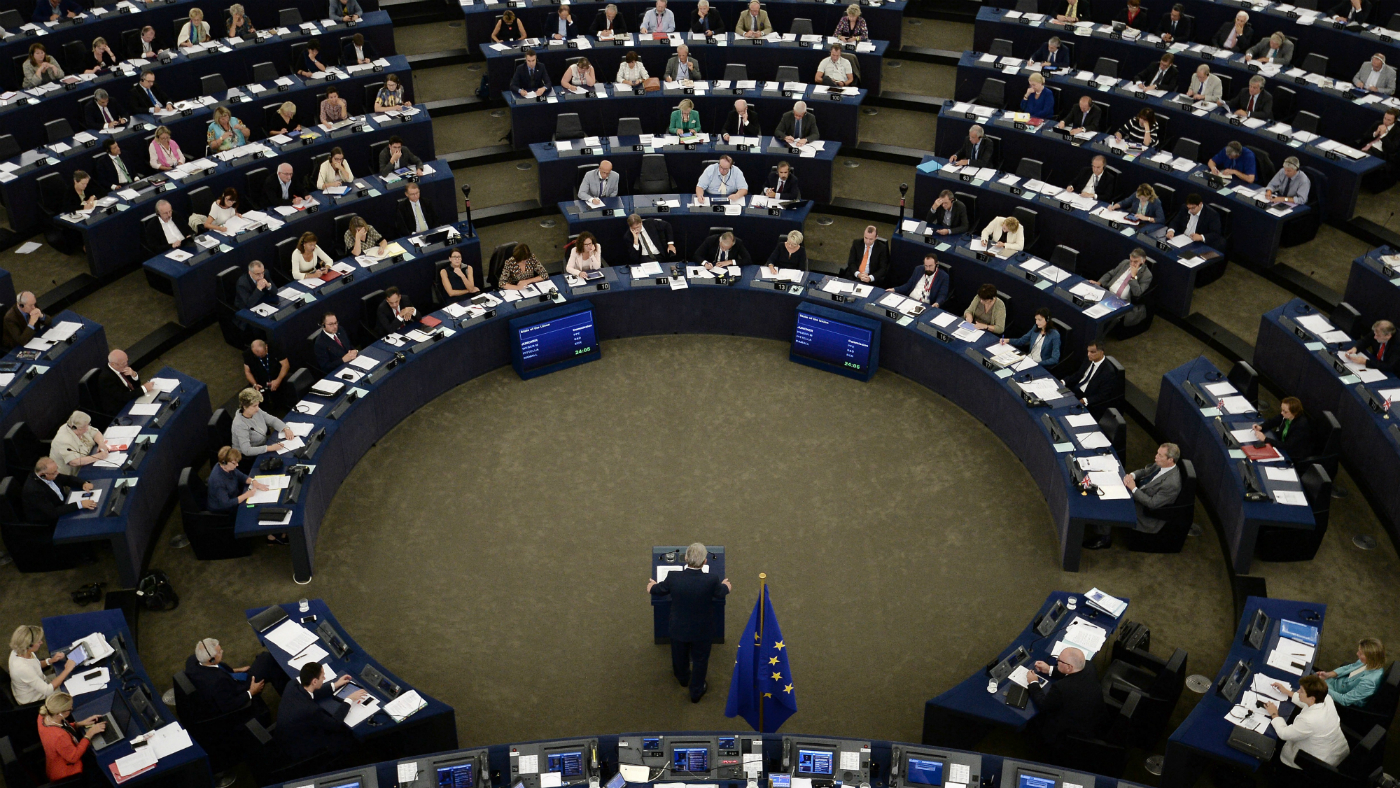EU rocked by €1m Qatar corruption scandal
European Parliament vice-president and three officials detained in custody as probe into alleged bribes widens

A free daily email with the biggest news stories of the day – and the best features from TheWeek.com
You are now subscribed
Your newsletter sign-up was successful
Investigators searched offices at the European Parliament yesterday after carrying out 19 other raids and seizing €1m in a widening probe into alleged bribes from World Cup host Qatar.
Belgian prosecutors said about €600,000 (£515,000) was seized at the home of one suspect and €150,000 was found at the flat of an MEP. Several hundred thousand euros was also found “in a suitcase in a Brussels hotel room”, amid “allegations that Qatar bribed EU officials to win influence”, the BBC reported.
Greek MEP Eva Kaili, a vice-president of the European Parliament, and three other people have been charged with corruption, money laundering and participating in a criminal organisation.
The Week
Escape your echo chamber. Get the facts behind the news, plus analysis from multiple perspectives.

Sign up for The Week's Free Newsletters
From our morning news briefing to a weekly Good News Newsletter, get the best of The Week delivered directly to your inbox.
From our morning news briefing to a weekly Good News Newsletter, get the best of The Week delivered directly to your inbox.
The scandal has been described as “one of the biggest corruption investigations in the history of the European Parliament”, said The Times.
Politico reported that a “stunned Brussels elite” was grappling with an “uncomfortable question” – “just how deep does the rot go?”
Parliament insiders “said they believed more names would be drawn into the widening dragnet”, according to the news site, “and that the Qatar bribery scandal was symptomatic of a much deeper and more widespread problem with corruption not just in the European Parliament, but across all the EU institutions”.
European Commission President Ursula von der Leyen yesterday said the accusations were “very serious” and called for the creation of a new ethics body to oversee the bloc. MEPs will discuss the allegations today. Qatar and Kaili have denied any wrongdoing.
A free daily email with the biggest news stories of the day – and the best features from TheWeek.com
-
 The ‘ravenous’ demand for Cornish minerals
The ‘ravenous’ demand for Cornish mineralsUnder the Radar Growing need for critical minerals to power tech has intensified ‘appetite’ for lithium, which could be a ‘huge boon’ for local economy
-
 Why are election experts taking Trump’s midterm threats seriously?
Why are election experts taking Trump’s midterm threats seriously?IN THE SPOTLIGHT As the president muses about polling place deployments and a centralized electoral system aimed at one-party control, lawmakers are taking this administration at its word
-
 ‘Restaurateurs have become millionaires’
‘Restaurateurs have become millionaires’Instant Opinion Opinion, comment and editorials of the day
-
 Epstein files topple law CEO, roil UK government
Epstein files topple law CEO, roil UK governmentSpeed Read Peter Mandelson, Britain’s former ambassador to the US, is caught up in the scandal
-
 Iran and US prepare to meet after skirmishes
Iran and US prepare to meet after skirmishesSpeed Read The incident comes amid heightened tensions in the Middle East
-
 EU and India clinch trade pact amid US tariff war
EU and India clinch trade pact amid US tariff warSpeed Read The agreement will slash tariffs on most goods over the next decade
-
 Grok in the crosshairs as EU launches deepfake porn probe
Grok in the crosshairs as EU launches deepfake porn probeIN THE SPOTLIGHT The European Union has officially begun investigating Elon Musk’s proprietary AI, as regulators zero in on Grok’s porn problem and its impact continent-wide
-
 Israel retrieves final hostage’s body from Gaza
Israel retrieves final hostage’s body from GazaSpeed Read The 24-year-old police officer was killed during the initial Hamas attack
-
 China’s Xi targets top general in growing purge
China’s Xi targets top general in growing purgeSpeed Read Zhang Youxia is being investigated over ‘grave violations’ of the law
-
 Panama and Canada are negotiating over a crucial copper mine
Panama and Canada are negotiating over a crucial copper mineIn the Spotlight Panama is set to make a final decision on the mine this summer
-
 Why Greenland’s natural resources are nearly impossible to mine
Why Greenland’s natural resources are nearly impossible to mineThe Explainer The country’s natural landscape makes the task extremely difficult